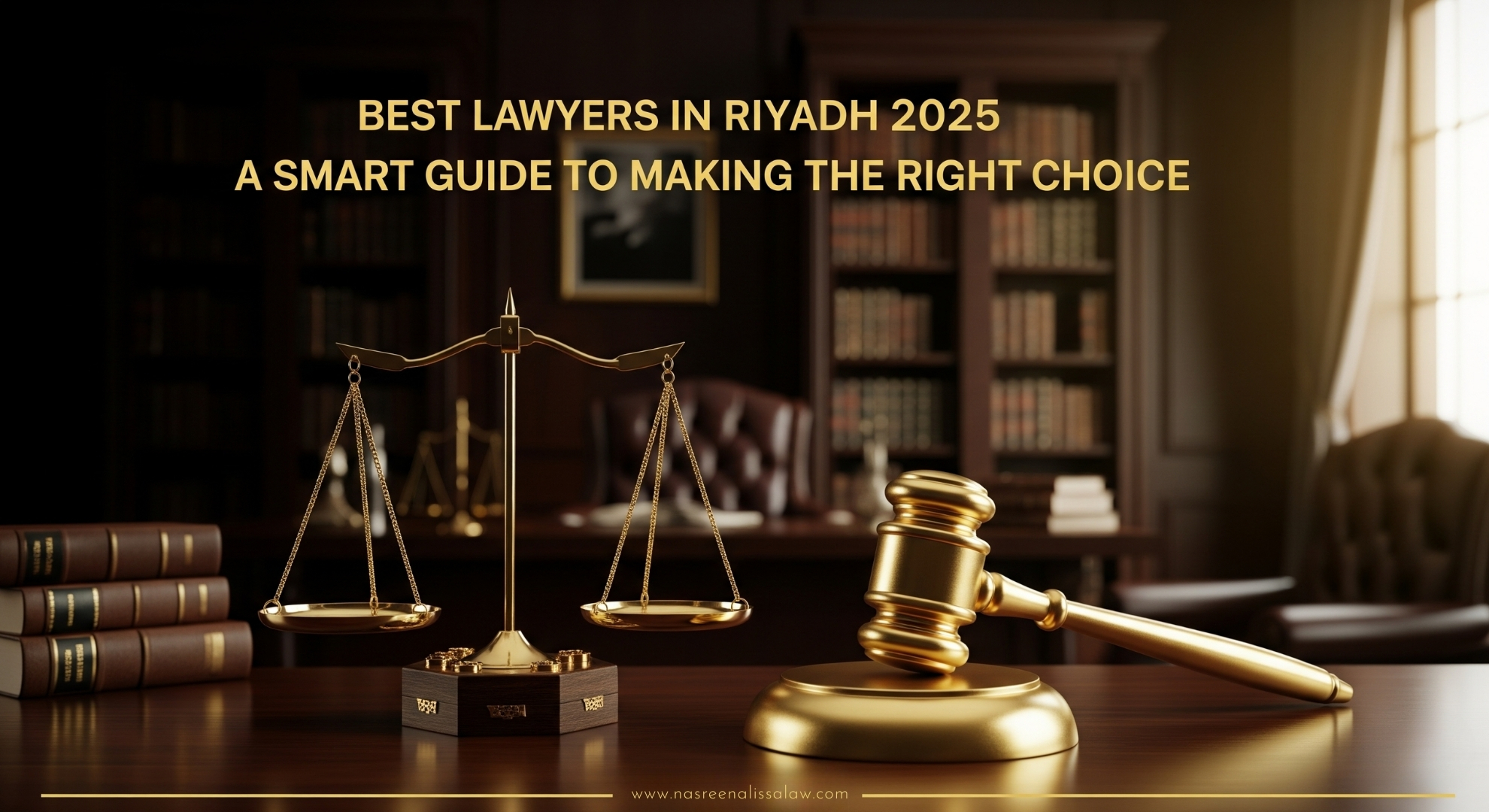It is more important to find the right partner for the future than legal counsel in Saudi Arabia. Whether it involves a business arrangement, a confidential matter, or a serious dispute, selecting the best lawyers in Riyadh is very important in the long run. As both the capital city and business hub for Saudi Arabia, Riyadh is where you are sure to find some of the most qualified and best-regarded law firms in the region.
This guide is included to help you navigate the 2025 Riyadh legal landscape. You’ll find quick, useful information to help you decide, from why you might need a lawyer to how you might want to examine potential legal professionals.
Why You May Need a Lawyer in Riyadh

Riyadh has a vast spectrum of legal demands, from simple paperwork to complex business disputes. Common ways in which individuals and organisations seek legal advice are:
- Business & Corporate Cases – Drafting contracts, setting up companies, mergers, acquisitions, and compliance with Saudi commercial laws.
- Family Law – Marriage, divorce, custody, inheritance, and guardianship matters are handled under both Sharia and modern regulations.
- Criminal Defence – Representation in criminal cases where professional defence is essential.
- Real Estate Disputes – Property ownership, rental agreements, construction issues, and land disputes.
- Labour & Employment Issues – Disputes between employers and employees, wrongful termination, and workplace rights.
When you hire the most qualified lawyers in Riyadh, you are not only guaranteed the protection of your rights but also of precision in taking care of your legal case.
Top Attributes of Leading Attorneys in Riyadh
All lawyers are not equal. When looking for representation, pay attention to the following characteristics, which define the best lawyers in Riyadh:
- Profound Understanding of Saudi Law – Familiarisation with both Sharia values as well as contemporary Saudi laws is imperative.
- Professional License – Lawyers should hold a professional license and should register with the Saudi Ministry of Justice.
- Excellent Communications Skills – To clearly explain legal procedures in English as well as Arabic.
- Established Record – Experience in handling cases such as yours.
- Client-Focused Approach – Responsiveness, confidentiality, and personalised advice.
Types of Lawyers in Riyadh
A variety of legal experts are available in Riyadh. You might require: Depending on your goals:
- Corporate Lawyers – For companies, agreements, and compliance.
- Family Attorneys – To handle marriage, divorce, child custody, and inheritance problems.
- Criminal Lawyers – To practice in criminal cases.
- Employment Attorneys – For disputes in the workplace, workers’ rights, and company policies.
- Property Lawyers – For property disputes, purchasing/selling property, and construction disputes.
Having this knowledge ensures you reach the right specialist.
How to Choose the Best Lawyer in Riyadh (2025)
Selecting an appropriate legal representative requires thoughtful consideration. The following are some practical steps:
- Determine Your Legal Needs – You should know what type of case you are involved in.
- Examine Credentials: Make sure to confirm a lawyer’s qualifications and licence.
- Evaluate Experience – Find lawyers whose experience is composed of dealing with similar cases.
- Read Reviews & Testimonials – Your clients are a wealth of information.
- Schedule a Consultation – A simple conversation helps you assess the professionalism of the service provider.
- Discuss Fees Up Front – Do not surprise clients with bills; clearly explain billing procedures.
As you make your selection, do not forget that the best advocates in Riyadh are not always those charging the most—they are the ones who listen carefully and deliver results.
Legal Fees in Riyadh (2025)
The fees are determined by the lawyer’s level and experience. As a rule, costs may include:
- Fee for Consultation – Initial advice meetings are typically fixed.
- Case-Based Charges – A charging system based on the type of case.
- Retainer Agreements – Ongoing representation for individuals or businesses.
Transparency regarding fee agreements is a hallmark of a professional law practice.
Principal Sources of Law in Saudi Arabia
For those wishing to study more, sources for trustworthy advice are:
- The official government website for judicial services is the Saudi Ministry of Justice Portal.
- Riyadh Chamber of Commerce: Business-oriented legal sources.
- Local Law Directories: Online lists of qualified lawyers along with their specialties.
These websites enable you to shortlist qualified professionals before making a final decision.
Why is Riyadh called the Legal Hub of Saudi Arabia?
Riyadh serves as the Kingdom’s judicial, economic, and political capital. Corporate houses such as multinational companies, government ministries, and international companies all maintain their office here; thus, it is a centre for legal expertise. Accessing the finest lawyers in Riyadh means access to professionals who are familiar with local practices in addition to international standards.
Conclusion
Choosing best lawyers in Riyadh in 2025 is a serious research question but it is worthwhile. From fighting for your rights in a family matter to safeguarding your business interests, a qualified lawyer is your greatest protector.
When professionalism, accuracy, and trust in clients comes first, you will find a name you can rely on: The Law Firm of Nasreen Alissa.
Frequently Asked Questions (FAQs)
Q1: How do I verify if a lawyer in Riyadh is licensed?
Ans. You can check a lawyer’s qualification on the website of the Saudi Ministry of Justice or simply request their registration details.
Q2: What is the average consultation fee for a lawyer in Riyadh?
Ans. Prices are not fixed, but most lawyers in Riyadh charge a standard amount for their first advice. Prices depend on a lawyer’s experience and on how complicated your case is.
Q3: Can foreign residents engage their own lawyers in Riyadh for private cases?
Ans. Yes, foreign residents and expats can engage Riyadh lawyers for their business, family, or individual cases. The majority of them speak Arabic and English.

